Before contacting us to book a talk please read our Information Page

We are delighted to offer a number of talks for adults, whether you are a WI, U3A, Probus, or another group or just a group of like-minded friends, our talks are aimed at you. We are based in Oxfordshire but we can travel to parts of Wiltshire, Buckinghamshire and Berkshire.
We are different from other speakers, our talks are narrated using a PowerPoint slideshow with hundreds of original photos, short videos and music, there is something happening on the screen constantly to keep the audience interested. Both of us narrate the talks with interesting facts, first hand memories and include a sprinkling of humour. We would advise that the hall you use is as dark as possible so that you get the full effects of the presentation. We also bring a small display of relevant original memorabilia to all of our talks to add interest.
Open to the Public
If you are a small group you might consider opening your talk to the public for a fee. This could help to swell your numbers and your bank account. We can help with publicity, please just fill in the section on the booking form.
Please see a brief description of the talks below then click on the link or scroll down to see our Frequently Asked Questions before contacting us to book a talk.
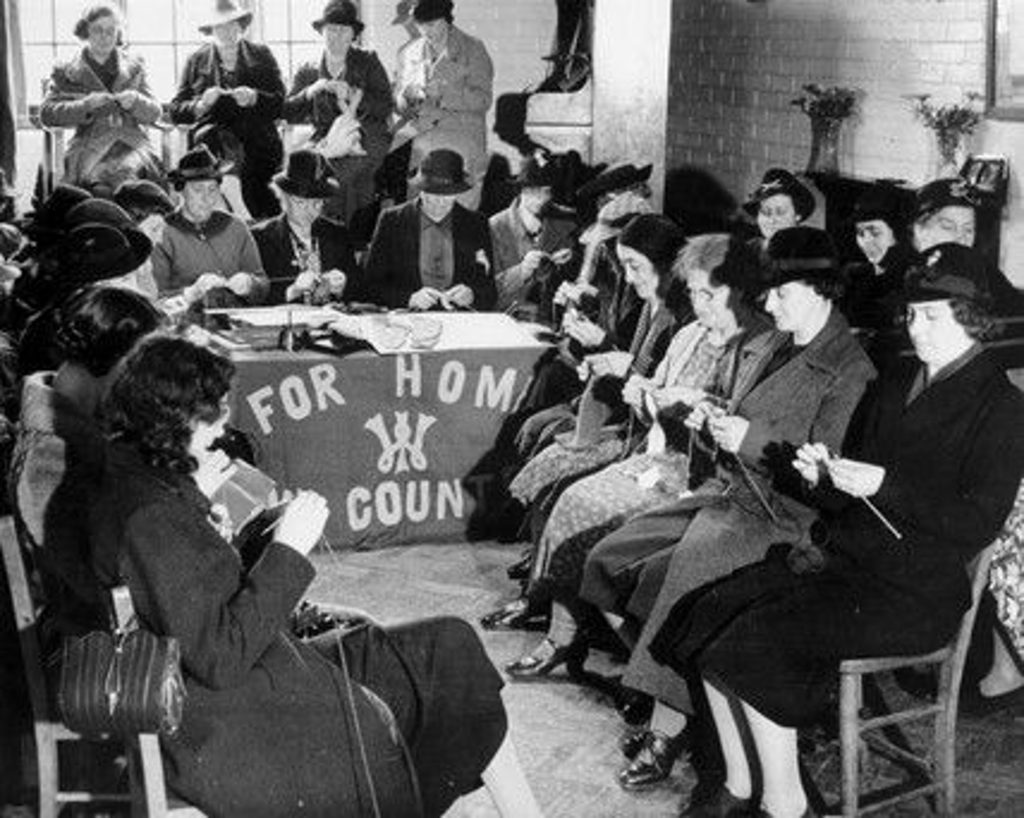
The Women’s Institute in WW2
Not just Jam and Jerusalem
Most people just think about the WI as making cups of tea, singing Jerusalem and making jam, but find out how it started and learn about the incredible part they played during WW2, unfortunately mostly forgotten.
Including some very interesting and surprising facts.
This talk is 1 hour long, plus please allow extra time at the end for questions.

WW2 Women’s Fashion, Dressing on the Ration
We take a look at the progression of women’s fashion from the 1930s to the end of the second world war, including make do and mend, dressing for the blackout, a cheeky look at underwear, uniforms, in Vogue, clothes rationing and more. Lots of interesting and amusing facts over 600 original photos and pictures, music and 2 interesting and amusing films.
This talk is 1 hour long, plus please allow extra time at the end for questions.

Upper Thames Patrol
The Upper Thames Patrol (the Home Guard Navy of WW2), a water born unit, was formed in 1939 to protect the river Thames (a natural stop line) in case of invasion in WW2.
Learn about the men and women who formed the UTP. Uncover the myth of the Dunkirk postage stamp. Listen to personal recollections and many amusing true stories. This presentation has approximately 180 original photos and 2 short films, all very rare,. Unfortunately very little information exists about the UTP in general and no books have been written about them, our talk is one of the most comprehensive collections to exist.
An interesting and entertaining talk. Probably more suited to a more male or mixed audience.
This talk is 1 hour long, plus please allow extra time at the end for questions.
Please click here for more details about the UTP.
Feedback: Thank you very much for the fascinating talk last night, lots of interesting facts and humourous stories (Historical Society)
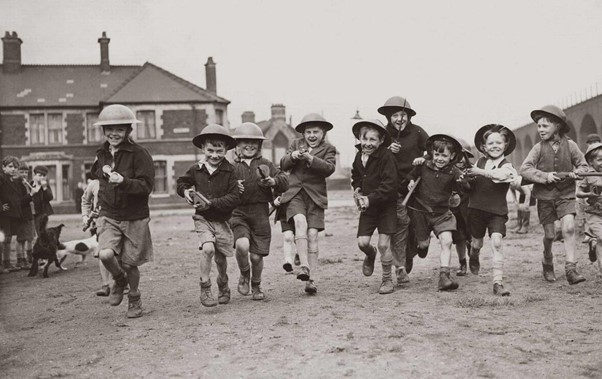
Wartime Children
Perhaps you were a child in WW2 and want to go down memory lane, or your parents were, or you may have an interest in history. This talk covers many aspects of life on the Home Front from a child’s point of view. Find out about air-raids, gas masks, life at home, schooltime, clothes, toys and games, evacuation, food rationing, national service and how children could help with the war effort. It is presented in an interesting way using PowerPoint with hundreds of original photographs, and music along with narration from us. It contains many surprising facts and surprises, very thought provoking talk.
This talk is 1 hour long, plus please allow extra time at the end for questions.
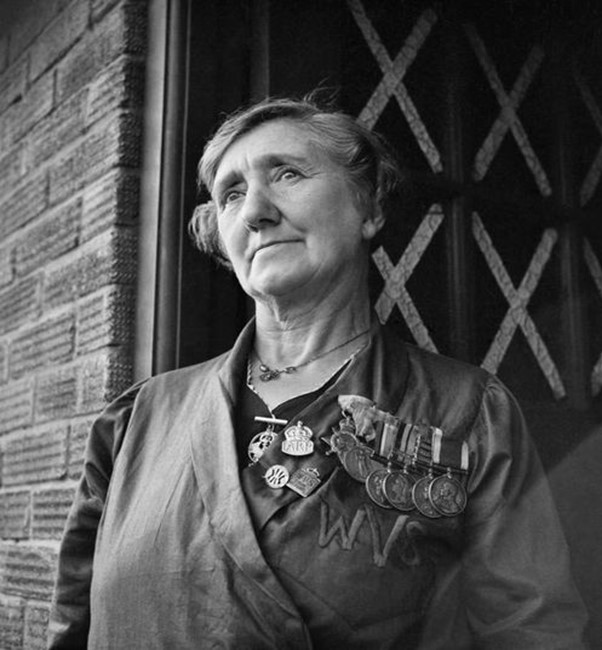
Women’s Voluntary Service (WVS) from 1938-1945
Over 1 million women volunteered with the WVS during the Second World War, it was the largest women’s voluntary force ever. Why did the WVS start? Who were the women who joined? The WVS were not just tea and sympathy, they often threw themselves into some surprising jobs, sometimes putting themselves into danger, keeping the country going in times of great hardship. The WVS became known as ‘The Army Hitler Forgot’.
They encompassed The Housewives Service, women who could not leave their homes for long periods of time or who were elderly.
This presentation includes over 350 original photographs music and an entertaining short film, we also include many references to the WI that worked closely along side the WVS.
This talk is 1 hour long, plus please allow extra time at the end for questions.
Feedback: Thank you so much for the fabulous presentation on Thursday evening. It was so interesting, we had no idea the WVS did so much during the Second World War. We have learnt so much and the presentation was truly first class. I am still receiving emails and text messages from my members saying how much they enjoyed the evening. They also loved the war memorabilia. Please share our feedback, because it was so much more than we were expecting, just great.
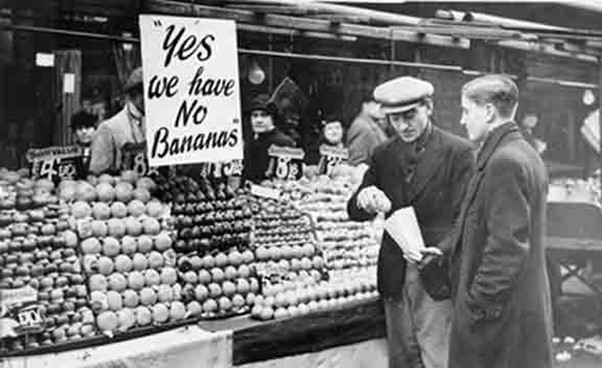
WW2 Rationing & Cooking for Victory, A Fair Share for All
During this entertaining talk (using music, recordings, video and hundreds of original photographs) we talk about why rationing was necessary in WW2, how the rationing system worked, what was on ration and more importantly what foods were off ration. Some surprising things the Ministry of Food tried to get the British public to eat, some definitely didn’t take off, others became firm favourites. Discover what it was like to eat out and find out how the British public kept the country going with the Dig for Victory campaign, keeping chickens, rabbits and pigs in their back gardens.
This talk is 1 hour long, plus please allow extra time at the end for questions.
Would you like to taste 1940s recipes? We can provide samples of wartime food (Bread Pudding, Vinegar Cake, The National Loaf and mock banana, for your audience to taste for an extra fee of £30 to cover costs. This is optional, please specify if you would like food samples for the Rationing talk at the time of booking.
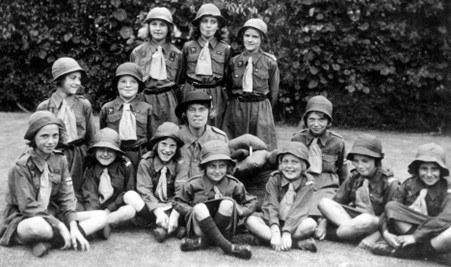
How the Brownies Helped Win the War
We take a brief look at how the war affected children in WW2. What girls had to do to join Brownies. Could you pass the Golden Hand award aimed at girls aged 10-11 years old (we have only met 1 adult that could!)? Find out what they did to help towards the war effort, some very surprising things and what the Brownies did to help raise money. How Brownies secretly helped MI9, a secret Government department.
A interesting and popular talk particularity with history societies, something very different and unfortunately an almost forgotten part of history.
This talk is 1 hour long, plus please allow extra time at the end for questions.
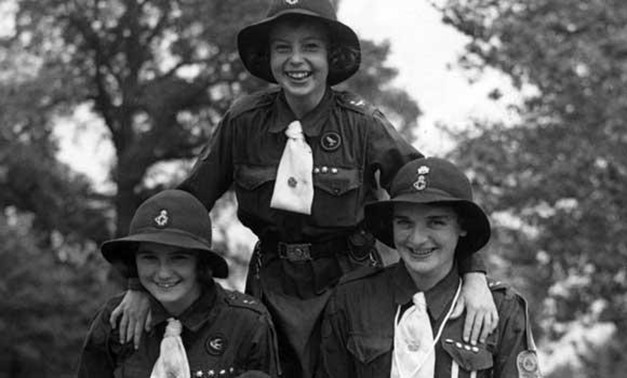
1940s Girl Guides
Why was Guiding so popular in the WW2? What was the Tenderfoot Test and how did it start to prepare girls for war work? Learn about the Second Class test, badges and uniform. We look at special training the Guides had and the part they played in evacuation, emergency cooking, hospital work, and undercover work for MI9, the secret government department responsible for helping British POWs, French resistance and uncovering German spies.
You will be amazed at the responsibility and resourcefulness of wartime Guides.
The talk/presentation includes hundreds of rare original photos, Wartime Girl Guides are know remembered as the forgotten Army, 750,000 in all.
This talk is 1 hour long, plus please allow extra time at the end for questions.
Feedback: Thank very much for coming at such short notice. it was very enjoyable in deed, I have had lots of good feed back from our members. (Riverside Trefoil Guild)
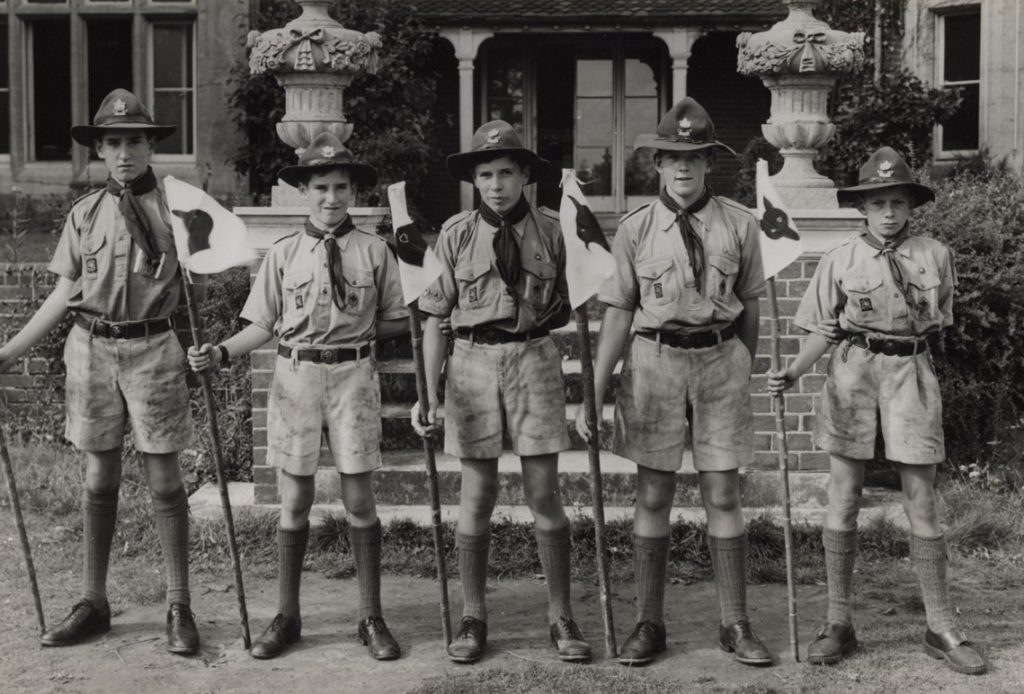
1940s Boy Scouts
Why did the number of Scouts decline during the war? Take a look at how the Scout training programme helped the Scouts with war work. Who were the Scout Messengers and hear some true life stories.
Learn about the very many jobs that were entrusted to Scouts. What part did Scouts plan in Churchill’s Secret Army? With over 200 original photographs and heroic tales, this is a very educational and interesting talk.
This talk is 1 hour long, plus please allow extra time at the end for questions.
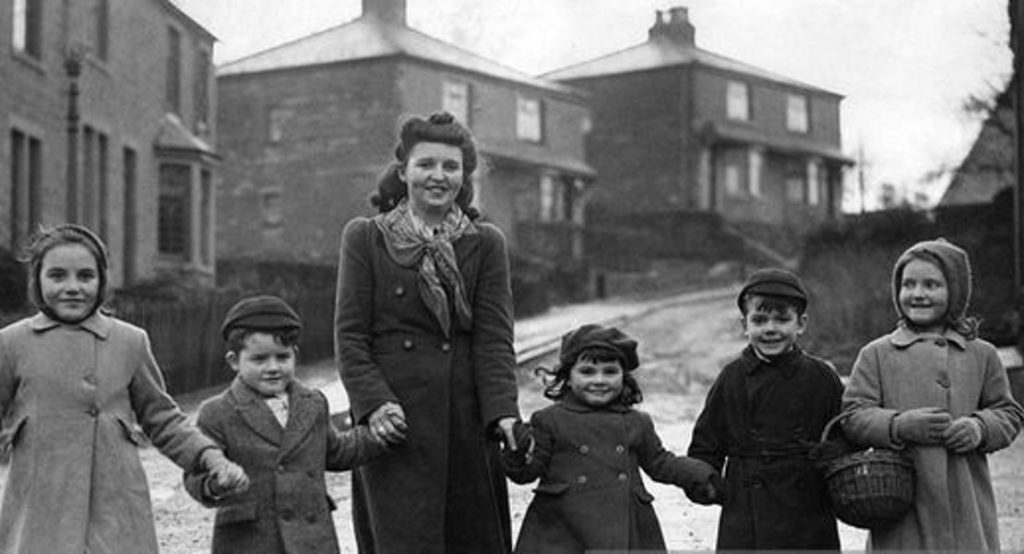
Life on the Home Front
What happened on the Home Front during WW2 and how did men, women and children keep the country going? Some very surprising facts, first hand memories, music and hundreds of photos.
This talk is 1 hour long, plus please allow extra time at the end for questions.

This talk is away from our usual subject of the Home Front in World War II, but we are often asked about our alternative way of life.
As live-aboard boaters the question we are most asked “Isn’t it Cold in the Winter?” In 2003 we bought an inflatable dinghy. It would be a purchase that would completely change our lives. Six years on we bought Edith, a Dutch Barge and moved on, lock, stock and cat. Follow our journey from making that monumental decision to what it is actually like to live on a Barge and travel the waterways.
This talk is 1 hour long, plus please allow extra time at the end for questions.
Frequently Asked Questions
Please read these before making an enquiry or booking, most of the answers are below, however please ask if you cannot find the answer you are looking for:
What is the cost of the talk?
We request a donation from £70 for a talk, plus 45p per mile for travel expenses. Please note we offer a lot more than most speakers, which we hope will be reflected in the donation. We are not a business and rely on donations to cover our expenses, including public liability insurance, which is a requirement for some groups.
How long is the talk?
All talks lasts for 1 hour, but please allow additional time at the end for questions. If your group usually starts with group business could you keep this short please or consider doing it after the talk. We cannot shorten our talks so please allow sufficient time for this. A minimum of 30 minutes is needed to set up for the talk, which can be reduced considerably with help transporting from/to the car.
What we provide.
Projector, stand, screen.
A small display of 1940s memorabilia.
We bring all of our own equipment, but if your hall has a projector, HDMI connection or screen please let us know. Please note that we are both experienced speakers and can project our voices to the back of large halls, therefore we only agree to use microphones in exceptional circumstances.
What do you need to provide?
2 x 6ft tables.
Electric point
Help transporting to and from the car is much appreciated.
A glass of water or better still a cup of tea is also much appreciated (as are directions to the toilets)!
How do I make a payment/donation?
Donations may be made using either of the following:
1. Bank Transfer:
Payee Name: Doing Their Bit
Account Number: 13225895
Sort Code: 04-03-33
Please note, if payment is made by BACS please can you pay within 24 hours of the talk.
2. Cash on the night.
Sadly we have had to stop receiving payment by cheque as it has grown increasingly difficult to pay them in.
How do I book a talk?
Please read the Information Page before making a booking, all of your questions will be answered here. E-mail contact@doingtheirbit.co.uk with your request. We aim to answer e-mails within 1 day. We do not accept bookings by phone. We will send you a booking form and on receipt of the completed form we will confirm the talk.